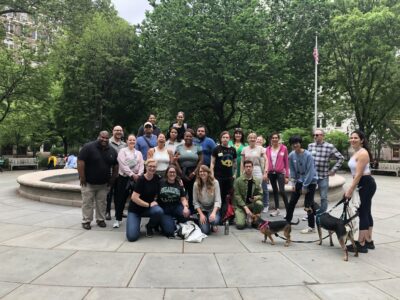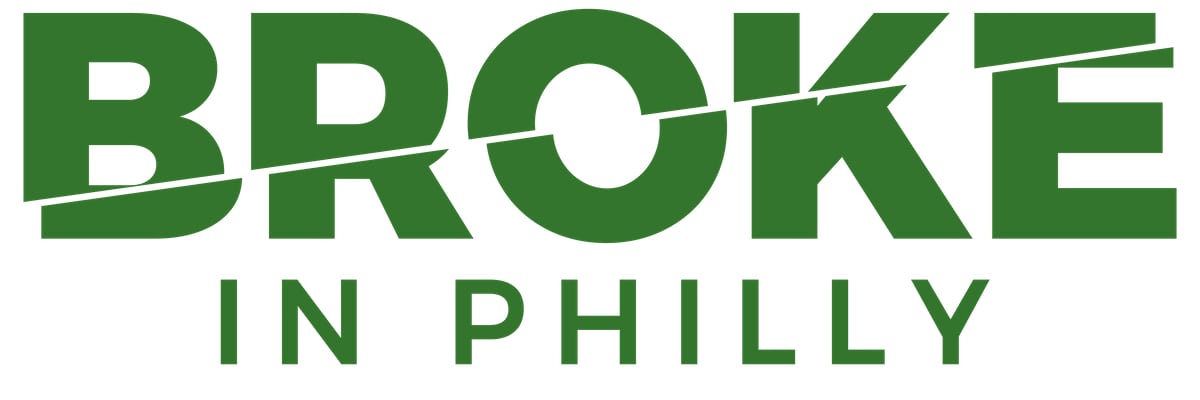
Technical.ly is one of 20+ news organizations producing Broke in Philly, a collaborative reporting project on solutions to poverty and the city’s push toward economic justice.
While many people have a decent understanding of the wage gap between genders, fewer people understand a deeper issue — a gender wealth gap — that persists.
It was the focus of Philly-based equality organization Women’s Way’s first Gender Wealth Summit on Friday Sept. 16 at Quorum. The nonprofit focuses on advancing gender and racial equity and creating opportunity for women and girls (including cisgender women, transgender women and femme-identifying people). It also aims to talk about the barriers women face when trying to gain wealth.
Kelly Sheard, director of the Gender Wealth Institute, said the motivation behind having the event was to “socialize” the idea of a gender wealth gap, which acknowledges that women face barriers to building wealth. This can look like being denied or overcharged for a mortgage, doing unpaid caregiving or labor, or being left out of financial decisions within the home, among other things.
“I think lots of folks understand a pay gap, but wealth is a little bit different when we’re talking about buffers and time of economic downturn,” she said. “And it feels really relevant in terms of where we are as a country economically because of the pandemic. Things feel heightened. But the truth is that sort of inequality has been really striking and persistent for women.”
Sheard said the org aims to identify the economic struggles many women are currently facing to create momentum and start to work on this issue — now felt like the right time to bring people together create change.
The summit included a keynote panel and a mix of sessions and discussion amongst attendees. The first session, called “Mapping the Issue and Identifying Signals of Change,” featured three speakers who each gave short TED-style talks about three topics relevant to the gender wealth gap conversation. Tanya Morris, president and founder of Mom Your Business, discussed entrepreneurship, Kim Rogers, program director at Clarifi, talked about financial education and Jenifer Groves, director of physician practices at St. Christopher’s Hospital for Children, presented about reproductive justice.
Diane Cornman-Levy, chief disruptor at Women’s Way, said that current wealth in the United States has been built on white supremacy. And the overturning of Roe v. Wade and the wage gap are examples of how the wealth gap is worsening. The pandemic has also highlighted these inequities, she added.
“In order to create equity for all women, we have to look at how wealth was built from the beginning in this country in order to actually deconstruct an economic system that exploits and oppresses most people in our country and predominantly women of color,” she said. “This is a wake up call. You know, this is a chance for people to really understand that, to mobilize people, to take action.”
Cornman-Levy said that reproductive justice has a huge impact on the economic security of women, and was made even more relevant by the recent overturning of Roe v. Wade. She said Women’s Way does work to address financial literacy, a subject that many women have been left out of.
Women’s Way also addresses entrepreneurship, and while Black women are the fastest growing entrepreneurs in this region, they receive the least amount of capital. Cornman-Levy said it’s important to create more opportunities for women to thrive in business.
“If we create more equitable ways of addressing those three, you’re going to start seeing more women thrive,” she said. “And more women get out of poverty and have a region, like I said, where everyone is really doing well.”
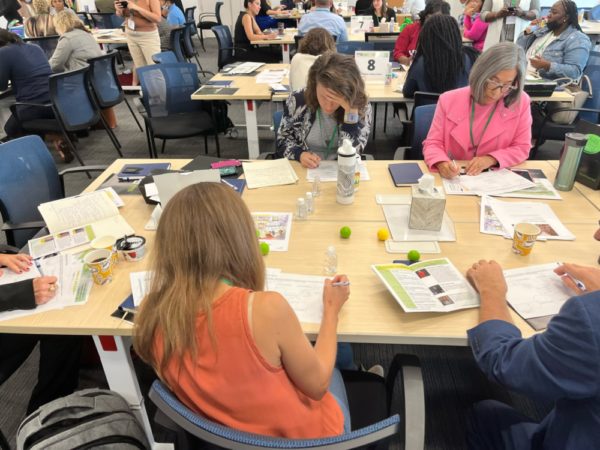
Attendees had time to think individually about the challenges women face when trying to build wealth. (Courtesy Photo)
Sheard said they tried to make the Summit more interactive than traditional conferences by reducing the amount of time just sitting and listening to speakers and instead incorporating more time for attendees to engage with each other. Sheard said having conversations about the gender wealth gap is important, because if we want to see structural change, we also need to consider how to approach the problem.
“We have to get comfortable with thinking about our mental models and our narratives,” Sheard said. “And so how we think about a problem, how we talk to each other about it, it feels like the fertile ground for how we’ll begin to enact the change that is impactful for women.”
Sheard said the goal of the Summit was to “complicate what we know about drivers of the gender wealth gap.” By talking about entrepreneurship, financial literacy and reproductive justice, people can better understand what they are and what challenges women face in these topics. Understanding these challenges and how they influence the gender wealth gap helps change people’s perspectives.
Cornman-Levy said to start addressing this problem, people address their own internalized white supremacy, racism and sexism before addressing it within organizations. She said the conversations at the Summit motivate her to continue with this work though and make her feel hopeful.
“I feel energized and I feel more hopeful,” she said. “Because I think everyone in this room is committed to building a region where all women and all people in the gender expansive community and all families and all people can thrive and not just survive.”
Sarah Huffman is a 2022-2024 corps member for Report for America, an initiative of The Groundtruth Project that pairs young journalists with local newsrooms. This position is supported by the Lenfest Institute for Journalism.Join the conversation!
Find news, events, jobs and people who share your interests on Technical.ly's open community Slack
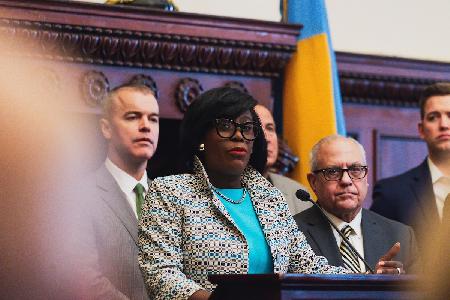
Philly’s IT department fires long-tenured staff amid a high-level shakeup of priorities

Why is it so hard to find entry-level software engineering jobs?
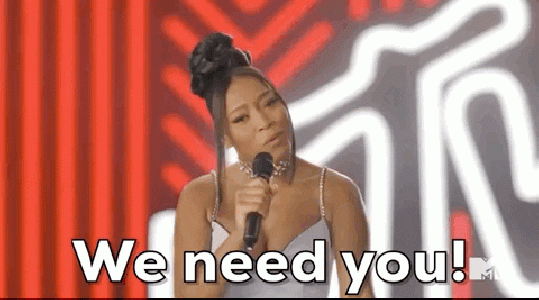
This Week in Jobs: Get out there with 22 new job opportunities available to you!
